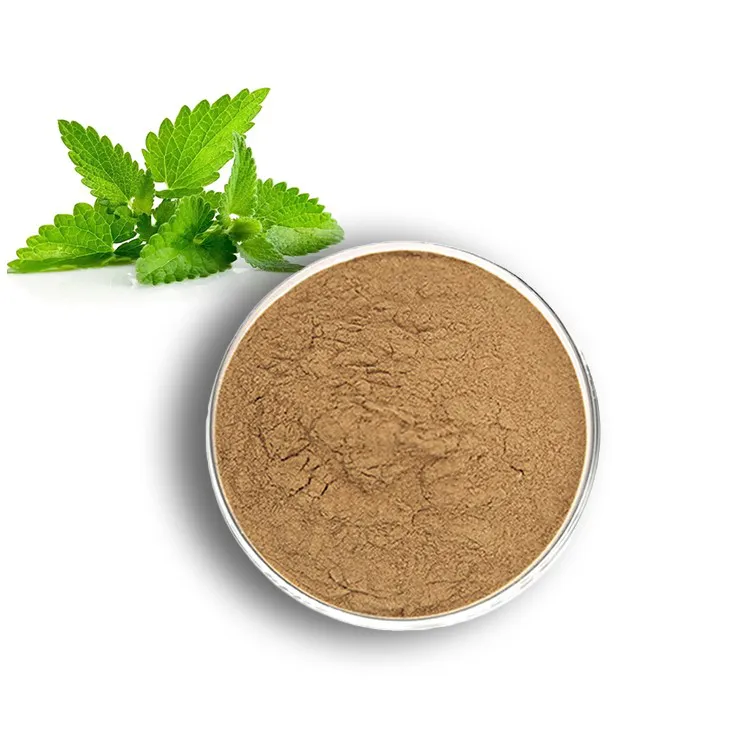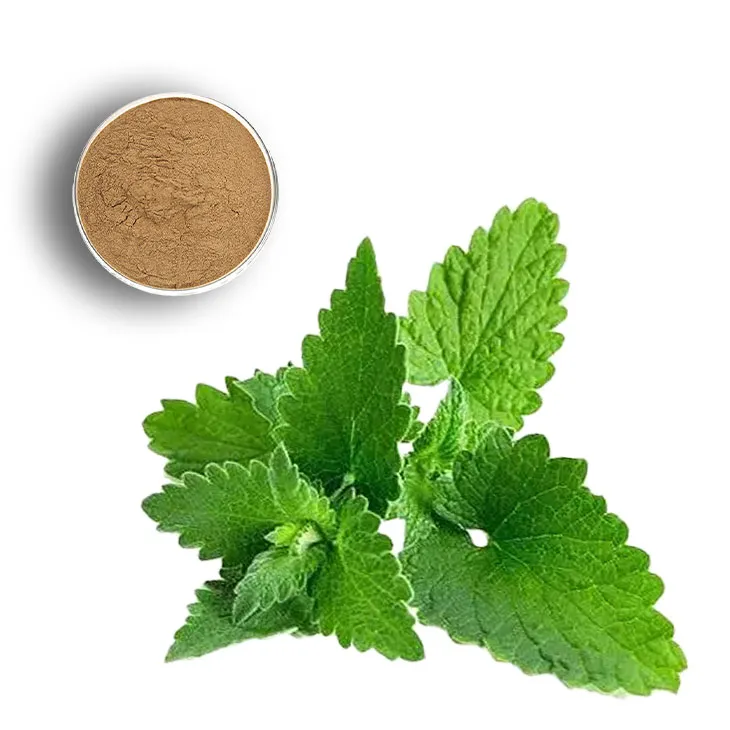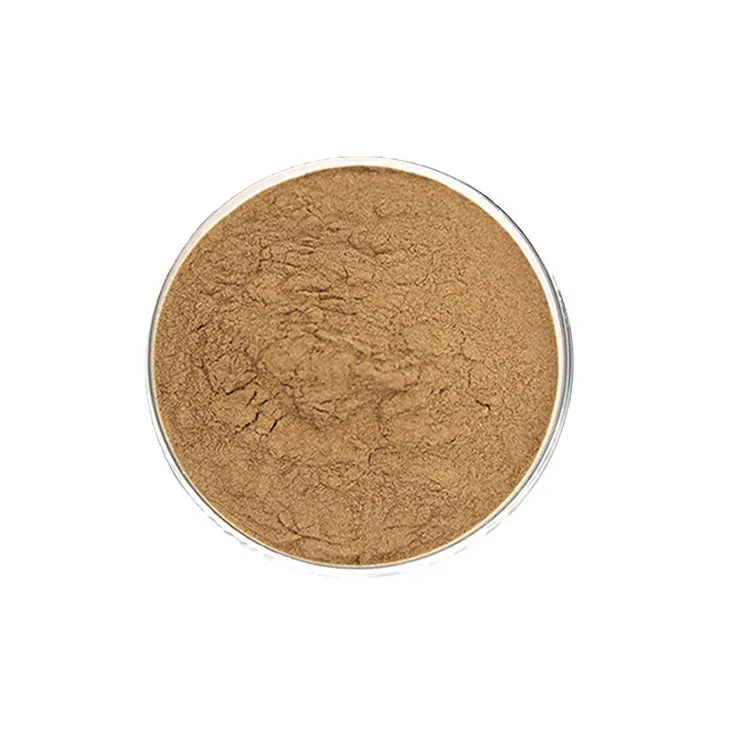- 0086-571-85302990
- sales@greenskybio.com
Is lemon balm extract beneficial for diabetes? Are these all safe and applicable for diabetic patients?
2024-11-12

1. Introduction
Diabetes has become a global health concern, affecting millions of people worldwide. As a result, there is a continuous search for natural substances that can help in its management. Lemon Balm Extract has emerged as a potential candidate in this regard. However, before it can be recommended for diabetic patients, a comprehensive understanding of its benefits and safety is essential.

2. What is Lemon Balm Extract?
Lemon balm (Melissa officinalis) is a herbaceous plant that has been used for centuries in traditional medicine. The extract is obtained from various parts of the plant, usually through methods such as steam distillation or solvent extraction. It contains a variety of bioactive compounds, including phenolic acids, flavonoids, and terpenes.

3. Potential Benefits for Diabetes
3.1. Glucose Regulation
Some studies suggest that Lemon Balm Extract may have a positive effect on glucose regulation. It may enhance insulin sensitivity, which is crucial for the proper metabolism of glucose in the body. Insulin is the hormone responsible for facilitating the uptake of glucose into cells. If cells become resistant to insulin, as is the case in type 2 diabetes, blood glucose levels can rise. Lemon balm extract may work to counteract this insulin resistance, although the exact mechanisms are not fully understood yet.
3.2. Anti - inflammatory Properties
Chronic inflammation is often associated with diabetes. High blood glucose levels can lead to increased inflammation in the body, which in turn can exacerbate diabetic complications. Lemon balm extract has been shown to possess anti - inflammatory properties. The bioactive compounds in the extract may help to reduce the levels of inflammatory markers in the body. By reducing inflammation, it may potentially slow down the progression of diabetes and its associated complications.
3.3. Antioxidant Effects
Oxidative stress is another factor that plays a significant role in diabetes. High blood glucose can generate free radicals, which can damage cells and tissues. Lemon balm extract is rich in antioxidants, such as flavonoids and phenolic acids. These antioxidants can scavenge free radicals, protecting cells from oxidative damage. This may contribute to better overall health in diabetic patients and may also help in preventing some of the long - term complications of diabetes, such as neuropathy and retinopathy.

4. Safety Considerations
4.1. Interaction with Medications
One of the major safety concerns regarding lemon balm extract for diabetic patients is its potential interaction with medications. Diabetic patients often take medications such as metformin, sulfonylureas, or insulin to control their blood glucose levels. There is a possibility that lemon balm extract may interact with these medications, either enhancing or reducing their effectiveness. For example, if it enhances the hypoglycemic effect of medications, it could lead to dangerously low blood glucose levels (hypoglycemia). On the other hand, if it reduces the effectiveness of medications, blood glucose control could be compromised.
4.2. Allergic Reactions
Some individuals may be allergic to lemon balm. Allergic reactions can range from mild symptoms such as skin rashes and itching to more severe reactions like difficulty in breathing and anaphylactic shock. Diabetic patients who are considering using lemon balm extract should be aware of this risk and should be cautious, especially if they have a history of allergies.
4.3. Dosage and Standardization
The lack of standardized dosage for lemon balm extract is another safety issue. Different products may contain varying amounts of the active compounds. Without a proper understanding of the appropriate dosage, it is difficult to ensure its safety and effectiveness. Taking too much of the extract may lead to adverse effects, while taking too little may not provide the desired benefits.

5. Research Evidence
Several studies have been conducted to investigate the effects of lemon balm extract on diabetes. However, the evidence is still somewhat limited and inconsistent in some aspects.
5.1. Animal Studies
In animal studies, lemon balm extract has shown promising results in terms of glucose regulation and anti - inflammatory effects. For example, in diabetic rats, the extract has been observed to improve insulin sensitivity and reduce blood glucose levels. However, it is important to note that results from animal studies may not always translate directly to humans.
5.2. Human Studies
Human studies on lemon balm extract and diabetes are relatively scarce. Some small - scale clinical trials have reported a mild improvement in blood glucose levels in diabetic patients who took lemon balm extract. However, these studies often have limitations such as small sample sizes and short - term follow - up periods. More large - scale, long - term studies are needed to confirm the benefits and safety of lemon balm extract for diabetic patients.
6. Recommendations for Diabetic Patients
Given the current state of knowledge, the following recommendations can be made for diabetic patients regarding lemon balm extract:
- Consult a healthcare provider: Before starting to use lemon balm extract, diabetic patients should consult their doctor or a healthcare professional. They can assess the individual's overall health status, current medications, and potential risks.
- Be cautious with self - medication: Diabetic patients should not self - medicate with lemon balm extract without proper medical advice. As mentioned earlier, there are potential risks associated with its use, especially in relation to medication interactions.
- Look for reliable products: If a healthcare provider approves the use of lemon balm extract, patients should look for high - quality, reliable products. They should ensure that the product is from a reputable source and has been properly tested for purity and potency.
7. Conclusion
In conclusion, lemon balm extract shows potential benefits for diabetes in terms of glucose regulation, anti - inflammatory, and antioxidant effects. However, its safety for diabetic patients is not yet fully established. There are concerns regarding potential medication interactions, allergic reactions, and lack of standardized dosage. More research, especially large - scale human studies, is needed to fully understand the role of lemon balm extract in diabetes management. Until then, diabetic patients should approach the use of lemon balm extract with caution and under the guidance of a healthcare provider.
FAQ:
What are the potential benefits of lemon balm extract for diabetes?
Lemon balm extract may have several potential benefits for diabetes. It might help in regulating blood sugar levels. Some studies suggest that it could enhance insulin sensitivity, which is crucial for the proper metabolism of glucose in the body. Additionally, it may have antioxidant properties that can protect cells from damage caused by high blood sugar levels over time.
How does lemon balm extract regulate blood sugar?
The exact mechanism by which lemon balm extract regulates blood sugar is not fully understood. However, it is thought to interact with certain receptors in the body related to glucose metabolism. It may also influence the release and function of insulin, the hormone responsible for moving glucose from the bloodstream into cells. Some components in the extract might stimulate pathways that increase the uptake of glucose by cells, thus reducing blood sugar levels.
Are there any side effects of lemon balm extract for diabetic patients?
While lemon balm extract is generally considered safe for most people, there can be some potential side effects for diabetic patients. In some cases, it may cause allergic reactions, especially in those with sensitivities to plants in the mint family (as lemon balm belongs to this family). There is also a possibility that it could interact with medications used to treat diabetes. For example, if it affects the way insulin or other blood - sugar - lowering drugs work, it could lead to either hypoglycemia (low blood sugar) or unexpected changes in blood sugar control.
Can lemon balm extract be used as a substitute for diabetes medications?
No, lemon balm extract should not be used as a substitute for diabetes medications. While it may offer some benefits in diabetes management, it has not been proven to be as effective as established medications in controlling blood sugar levels. Diabetes medications are specifically designed and tested to regulate blood sugar in a reliable and consistent manner. Using lemon balm extract instead of medications could lead to poor blood sugar control and an increased risk of diabetes - related complications.
How should diabetic patients use lemon balm extract?
If diabetic patients want to use lemon balm extract, they should first consult their healthcare provider. The healthcare provider can assess their overall health, current diabetes management plan, and any potential interactions with medications. If it is deemed safe to use, it should be used in moderation. It can be consumed as a tea or in supplement form, following the recommended dosage instructions. However, close monitoring of blood sugar levels is essential to ensure that it does not cause any adverse effects on diabetes control.
Related literature
- The Effects of Lemon Balm (Melissa officinalis) on Glucose Metabolism in Diabetic Rats"
- "Lemon Balm Extract and Diabetes: A Review of Potential Mechanisms and Clinical Implications"
- "Safety and Efficacy of Herbal Supplements, including Lemon Balm, in Diabetes Mellitus"
- ▶ Hesperidin
- ▶ citrus bioflavonoids
- ▶ plant extract
- ▶ lycopene
- ▶ Diosmin
- ▶ Grape seed extract
- ▶ Sea buckthorn Juice Powder
- ▶ Beetroot powder
- ▶ Hops Extract
- ▶ Artichoke Extract
- ▶ Reishi mushroom extract
- ▶ Astaxanthin
- ▶ Green Tea Extract
- ▶ Curcumin Extract
- ▶ Horse Chestnut Extract
- ▶ Other Problems
- ▶ Boswellia Serrata Extract
- ▶ Resveratrol Extract
- ▶ Marigold Extract
- ▶ Grape Leaf Extract
- ▶ blog3
- ▶ blog4
- ▶ blog5
-
Organic Tongkat Ali extract powder factory.
2024-11-12
-
How to make powder with ashwagandha extract.
2024-11-12
-
Rosehip extract manufacturers from China.
2024-11-12
-
The best cat's claw extract in nature.
2024-11-12
-
Chinese Dandelion Leaf Extract Suppliers.
2024-11-12
-
Tongkat Ali Extract Powder
2024-11-12
-
Cassia Seed Extract
2024-11-12
-
Garcinia Cambogia Extract
2024-11-12
-
Artichoke Extract
2024-11-12
-
Red Wine Extract
2024-11-12
-
Wheat Germ Extract
2024-11-12
-
Nettle Root Extract
2024-11-12
-
Lotus leaf extract
2024-11-12
-
Sugarcane Extract
2024-11-12
-
Acerola Extract
2024-11-12





















